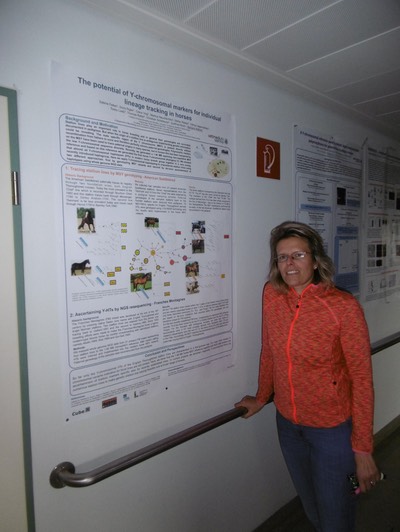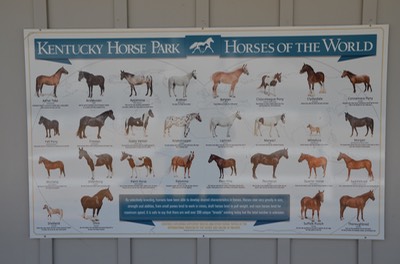A scientific research by Dr. Barbara Wallner from the VET-University in Vienna
By Nikolaus Matzka
My Swedish friend Ulf Lindström sent me a link to a very interesting article (please read it here before continuing with the article) about a research done by Dr. Barbara Wallner from the Veterinarian University in Vienna, Austria. I contacted Mrs. Wallner and talked with her about the topic at the University.
Which horses were used for the study? At the first examination there were 52 male horses of 21 modern breeds, in a later one 363 horses (all-male) from 57 modern breeds. This corresponds to about one fifth of all modern breeds, of which there are about 300.
I was fascinated by this topic and kept in contact with Ms. Wallner. After receiving little support for her work from France, I asked her if she had examined the pure French Trotting Breed of the paternal line of Reynolds / Fuschia. After this was not the case, we found in Austria a gelding from this line, the now ten-year-old Reve d'Amerique, whose father Revenue comes from this paternal line. It´s owner, Gestüt Rupp, was so gracious in providing the horse's blood for further DNA testing. The result: Tb-g = Y chromosome from Godolphin Barb, as expected.
At that time (October 2017) I traveled to Ecuador and visited the thoroughbred racetrack in Guayaquil. A grey horse named Granitico crossed my path in the stables and I tore some hair from him. These were also examined, and here too nothing new (Granitico comes from the outstanding stallion line of Nearco / Northern Dancer): Tb-dW = Y chromosome of Whalebone, as expected.
I asked Mrs. Wallner why the study was done first with 52 and then with 363 horses?
"It was all done in the same study, there were only 2 different examination techniques. In the first step of the analysis we looked for the variants on the Y chromosome in a sample of 21 (52 animals). In the second step, these variants then typed in a larger sample (363 …). We also performed this typing on the samples provided by you.“
Is the investigation completed now?
"Regarding the mentioned study, the examination of the provided samples is completed. As we are currently working on a refined network, we may have another fine characterization over the next few months."
Related articles:
– Whence the Domestic Horse?
– Y Chromosome Uncovers the Recent Oriental Origin of Modern Stallions
2018_03

